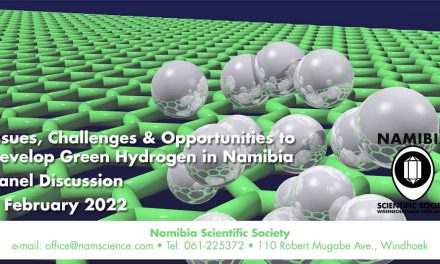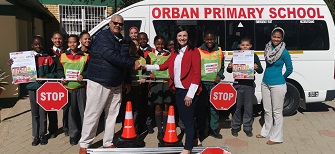
‘We are equal and by working together, our society can be too’- Geingos

The Organisation of African First Ladies (OAFLAD), allowed First Ladies to share their experiences and immerse themselves in expert presentations, designed specifically for the unique leadership of First Ladies at The Global First Ladies Academy.
The Global First Ladies Academy concluded on 13 July in New York with a certificate ceremony and with the President of the Organisation of African First Ladies Monica Geingos speaking about the evolution of First Ladies and their continued need to adapt to societal needs. She included a review of the title ‘First Ladies’ to support the political inclusion of women which would trigger the presence of male spouses in future activities.
Geingos spoke to the effectiveness of OAFLAD as a powerful advocacy platform and used the example of OAFLAD’s recently launched a year-long unifying campaign to close the gender gap in Africa with a clear message. “We are equal, and by working together, our society can be too,” she added.
She also spoke to the evolution of the organization from a single issue focus on HIV/AIDS to a broader engagement of social development and called on the multiple research partners who attended the public session to join the campaign and help shape effective messages on the collective action required to close the gender gap across four campaign pillars, which are health, gender-based violence, education, and economic empowerment.
“I believe that the tools learned during the First Ladies Academy will enable the enhancement of advocacy tools to be used during OAFLAD’s We are Equal camping, the Global First Ladies Academy was an important opportunity for First Ladies to deepen their understanding of global developments in a constantly changing geopolitical, economic, environmental, social and technological context,” she emphasised.
The One Economy Foundation further explained that the learnings of the Academy were practical and aimed at enriching the implementation capacity of the office of First Ladies to maximise the use of their individual and collective platforms. “This inaugural program is a global first and came to fruition through a unique partnership and extensive co-creation of the program modules between the aforementioned parties. Participating First Ladies from Botswana, Burundi, the Gambia, Kenya, Malawi, Mozambique, Malawi, and Zimbabwe were awarded certificates for their participation in the graduate level Executive Leadership Program to advance health and development,” they added.
They informed that Faculty from the University of Columbia’s Mailman School of Public Health and external experts led interactive sessions covering topics from effective public health leadership, and strategic policy-making, to public health system strengthening and communication. “The workshops and lectures which constituted the Program focused on interdisciplinary strategies to improve health with lectures also on specific public health challenges and how to devise successful strategies to address them. The presentation included ICAP’s partnerships with African nations in the fight against HIV/AIDS, through capacity-building programs, case studies on policies addressing infant and maternal mortality and cervical cancer, evidence-based techniques for leadership and resource mobilization, the strategic process required for effective public health communication,” said the Foundation.
They further highlighted that as a side event to the Program, it was an honour to welcome, United States of America, Dr. Jill Biden on 12 July for a First Ladies Round-table Discussion, and Geingos and Biden made mutual commitments to deepen the working relationship between their respective offices and the Organisation of African First Ladies.
Geingos thanked Biden for her friendship, sincerity, and commitment to building a meaningful relationship with African First Ladies.












































